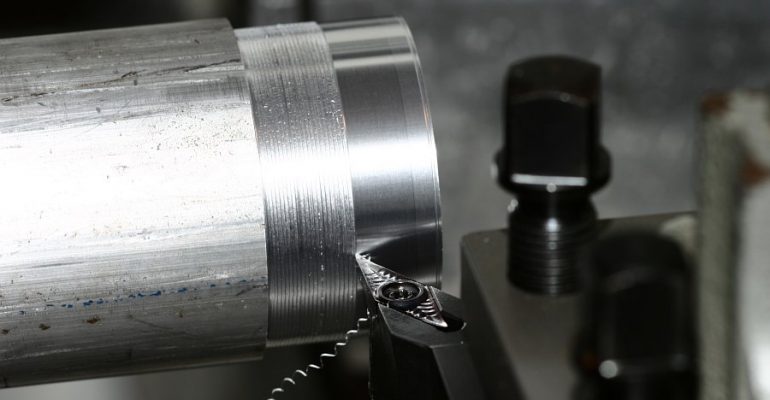Turning is a form of machining, a material removal process, which is used to create rotational parts by cutting away unwanted or excess material. The turning process requires a turning machine or lathe, workpiece, cutting tool and fixture. The workpiece is a piece of pre-shaped material or metal block that is secured to the fixture, which itself is attached to the turning machine, and allowed to rotate at high speeds.
The cutter is typically a single-point cutting tool that is also secured in the machine, although some operations make use of multi-point tools. The cutting tool feeds into the rotating workpiece and cuts away material in the form of small chips to create the desired shape.
Turning is used to produce rotational, typically axi-symmetric, parts that have many features, such as holes, grooves, threads, tapers, various diameter steps, and even contoured surfaces. Parts that are fabricated completely through turning often include components that are used in limited quantities, such as custom designed shafts and fasteners, which are used as prototypes.
Turning is also commonly used as a secondary process to add or refine features on parts that were manufactured using a different process. Due to the high tolerances and surface finishes that turning can offer, it is ideal for adding precision rotational features to a part whose basic shape has already been formed.
